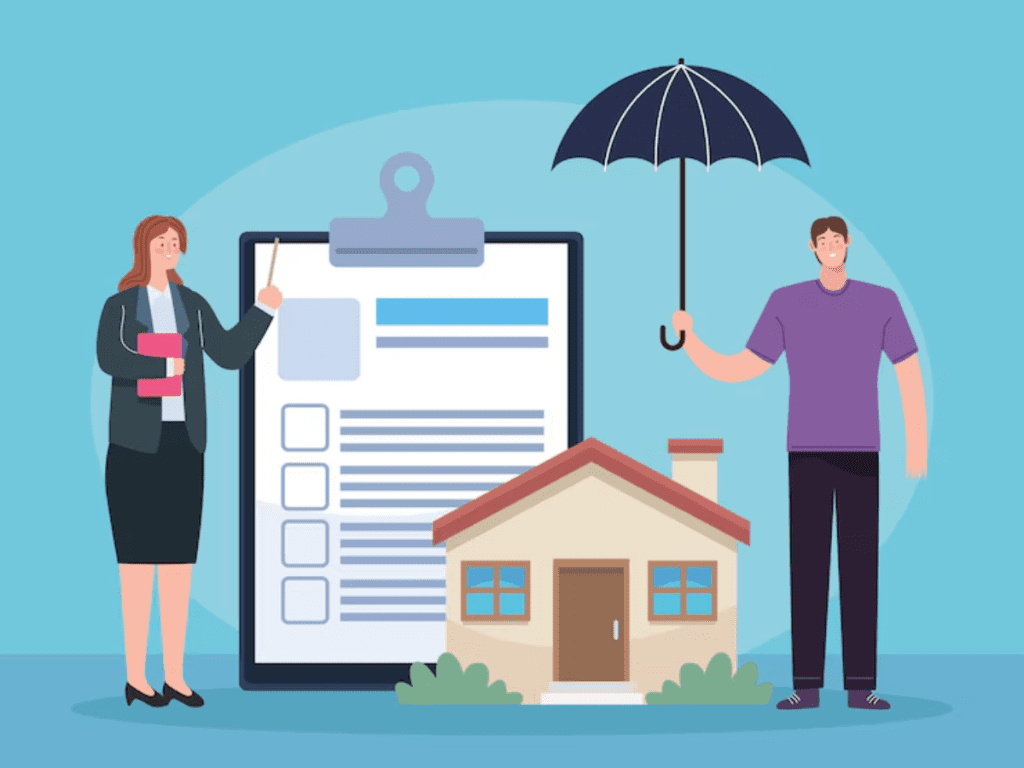Introduction
Natural disasters, by definition, are unforeseen and can occur at any moment, usually causing immense damage in their wake. From the flooding that results from torrential rains to the earth-shattering effects of an earthquake or the raging fires of a wildfire, the devastation that follows these disasters can leave homes, businesses, and communities as a whole in shambles. In the event of such possible devastation, it is important to take insurance policies that guard against such particular risks. While everyone knows about general homeowners or renters insurance, there are other forms of coverage for events that may not be included in standard policies. Flood, earthquake, and wildfire insurance are three types of coverage that home, rent, and business owners in high-risk areas should seriously consider. Specialized insurance coverage helps protect homeowners, renters, and business owners from the cost of a natural disaster, making it easier for individuals to rebound more quickly and with less expense after a calamitous event.
Floods are one of the most common and destructive natural disasters in the world, capable of occurring anywhere, regardless of geographic location. The causes of floods can vary greatly, from excessive rainfall to rising sea levels and snowmelt. Floods have the potential to ruin homes, businesses, and infrastructure, causing substantial financial losses and hardship for those affected. In most instances, the flooding damage is widespread and takes months or even years to completely restore. Worse still, most common homeowners insurance policies exclude flood damage, hence individuals find themselves with no financial cover in case of a flood unless they have bought extra flood insurance.
Who Needs Flood Insurance?
Homeowners, renters, and business owners who reside or conduct business within flood-prone areas are especially in need of flood insurance. These locations are typically defined as flood zones by government authorities like the Federal Emergency Management Agency (FEMA) in America. Nevertheless, flooding can also take place in regions that would not normally qualify as high-risk zones, i.e., you could be in a region that is not even situated in a flood zone and still be exposed to flooding. Indeed, approximately 20 percent of all claims for flood insurance are made on properties located outside high-risk flood areas, which highlights the unpredictability of floods.
You are more at risk for flooding if you reside in a coastal zone, close to rivers, or in an area that often receives heavy rainfall or storms. Also, if your house is in a location prone to previous flooding or is identified as having inadequate drainage systems, acquiring flood insurance becomes increasingly urgent. Federally backed mortgages for homeowners living in specified flood areas typically require homebuyers to buy flood insurance as part of the mortgage contract.
Why Is Flood Insurance Important?
Flood insurance offers valuable protection to allow homeowners to financially recover from flood damage. The expense of restoring a home after a flood can easily be tens of thousands of dollars, depending on the level of damage. Regular homeowners policies typically do not cover water damage due to flooding, so homeowners who lack flood insurance would have to pay these expenses out of pocket. This financial pressure can be suffocating, particularly if the flood is extensive and causes significant damage to the home, including structural damage to the foundation, walls, and floors, and the destruction of personal items such as furniture, electronics, and clothing.
Aside from paying for the repair and replacement of destroyed property, flood insurance also covers temporary housing in case your house becomes unlivable due to flooding. Most flood insurance policies include living expenses coverage, which will allow you to stay somewhere while your house is repaired. Without flood insurance, homeowners might have to endure a long and costly recovery process, which will only add to the financial burden brought about by the flood.
Earthquake Insurance: A Vital Protective Measure for People Residing in Seismic Regions
Earthquakes are violent and sudden shaking phenomena that have the potential to cause catastrophic destruction. While earthquakes happen relatively infrequently in some locations, they tend to be more frequent in others, especially at tectonic plate edges. Earthquakes result in extensive damage to buildings, infrastructure, and the environment, as well as a high mortality and loss of property. Typical homeowners insurance policies usually exclude coverage for earthquake damage, so residents of earthquake-risk regions must purchase additional earthquake insurance so that they have coverage if an earthquake occurs.
Who Needs Earthquake Insurance?
Earthquake insurance is most important for people and companies who reside or conduct business in regions that are at risk for seismic activity. These areas encompass locations along fault lines, like California, Alaska, and portions of the Pacific Northwest in the US. Seismic zones, though, are not confined to these locations. Earthquakes can and do take place in locations where they least expect them, like portions of the Midwest and Eastern US. Therefore, even those who reside in regions that have no history of earthquakes should still take earthquake insurance as a preventive measure.
One of the biggest problems with earthquakes is that they happen suddenly, without notice. Unlike wildfires or floods, earthquakes seldom can be forecasted, so it is that much more crucial to have insurance protection in place ahead of time. Earthquake insurance can be particularly valuable in areas where construction codes are less stringent or where buildings and businesses are more susceptible to earthquake damage based on their age or design.
Why Is Earthquake Insurance Important?
The economic cost of an earthquake can be huge, with the cost of repairs sometimes running into tens or even hundreds of thousands of dollars. Standard home insurance generally pays for loss or damage from fire, theft, and other sources but does not cover loss or damage due to earthquakes. Therefore, homeowners without earthquake insurance would need to cover repairs or the cost of rebuilding from their own pockets, which can be a huge financial burden.
Earthquake insurance provides homeowners with the ability to recoup losses by paying for the rebuilding or repair of a compromised property, such as the building structure and personal items within it. Most earthquake insurance policies also include temporary living costs in case a property becomes unlivable due to an earthquake. Without this protection, homeowners may be left scrambling to secure new housing and keep their finances intact during a vulnerable moment.
Wildfire Insurance: A Necessary Policy for Those Living in Fire-Susceptible Areas
Wildfires are on the rise, especially in areas that have dry weather, hot temperatures, and recurring droughts. Wildfires are quick to spread and are usually hard to contain, resulting in extensive damage to homes, businesses, and the environment. Where fires in the wild are common, residents need to ensure they have wildfire insurance that guards against the financially devastating consequences of these wildfires. Wildfire coverage is normally an extension of homeowners insurance policies but may need a special, stand-alone wildfire coverage where danger of wildfire is heightened.
Who Needs Wildfire Insurance?
Wildfire coverage is essential for homeowners, tenants, and business persons who reside in regions that are susceptible to wildfire. Such regions tend to be in dry climates, where vegetation is thick, and winds are strong, all of which cause fire to spread extremely fast. The Western United States, such as the states of California, Oregon, and Arizona, are especially prone to wildfires, but the danger is spreading to other regions too. If you reside in or near a wooded area, a grassland, or any land where wildfires have previously occurred, your property is vulnerable.
Even those residences not necessarily directly within a noted wildfire zone might be susceptible to the repercussions of a wildfire. Wildfires tend to cover wide distances, and their impact reaches much further from where the initial fire took hold. Homeowners in the nearby area, then, ought also to think in terms of buying wildfire insurance as part of the larger risk management approach.
Why Is Wildfire Insurance Important?
The devastation of a wildfire cannot be exaggerated. Wildfires have the ability to burn homes, businesses, and communities to the ground in a few hours, leaving nothing but destruction behind. Rebuilding or repairing following a wildfire can be a very expensive endeavor, and without adequate insurance coverage, homeowners would be left to pay for it themselves.
Homeowners can be protected by wildfire insurance, which covers the cost of rebuilding or fixing their house, replacing personal items, and paying for extra living expenses in case their home becomes uninhabitable due to damage from a fire. In the case of areas with high risk of wildfires, it is crucial to have insurance coverage to allow you to financially recover from losses sustained in the event of a fire.
Conclusion: The Need for Specialized Insurance for Natural Disasters
Natural disasters like floods, earthquakes, and wildfires are now more common and intense in today’s world. It is therefore more crucial than ever that your property is secured adequately. Although general homeowners insurance may cover most risks, it will usually not cover certain natural disasters like floods, earthquakes, and wildfires. For people and companies in high-risk zones, buying specialized insurance policies for such incidents is imperative to protect their homes, businesses, and financial futures.
Flood, earthquake, and wildfire insurance offer important financial protection that can enable you to recover fast and rebuild following a disaster. Without these insurance policies, the repair, replacement, and temporary living costs might be financially ruinous. Regardless of whether you reside in a high-risk area or an area that experiences unforeseen natural occurrences, being aware of the necessity of such insurance is the initial step in insuring your future. Being proactive and acquiring the proper protection allows you to weather the uncertain nature of natural disasters more effectively and keep your home and property safe from the worst of what Mother Nature can offer.

